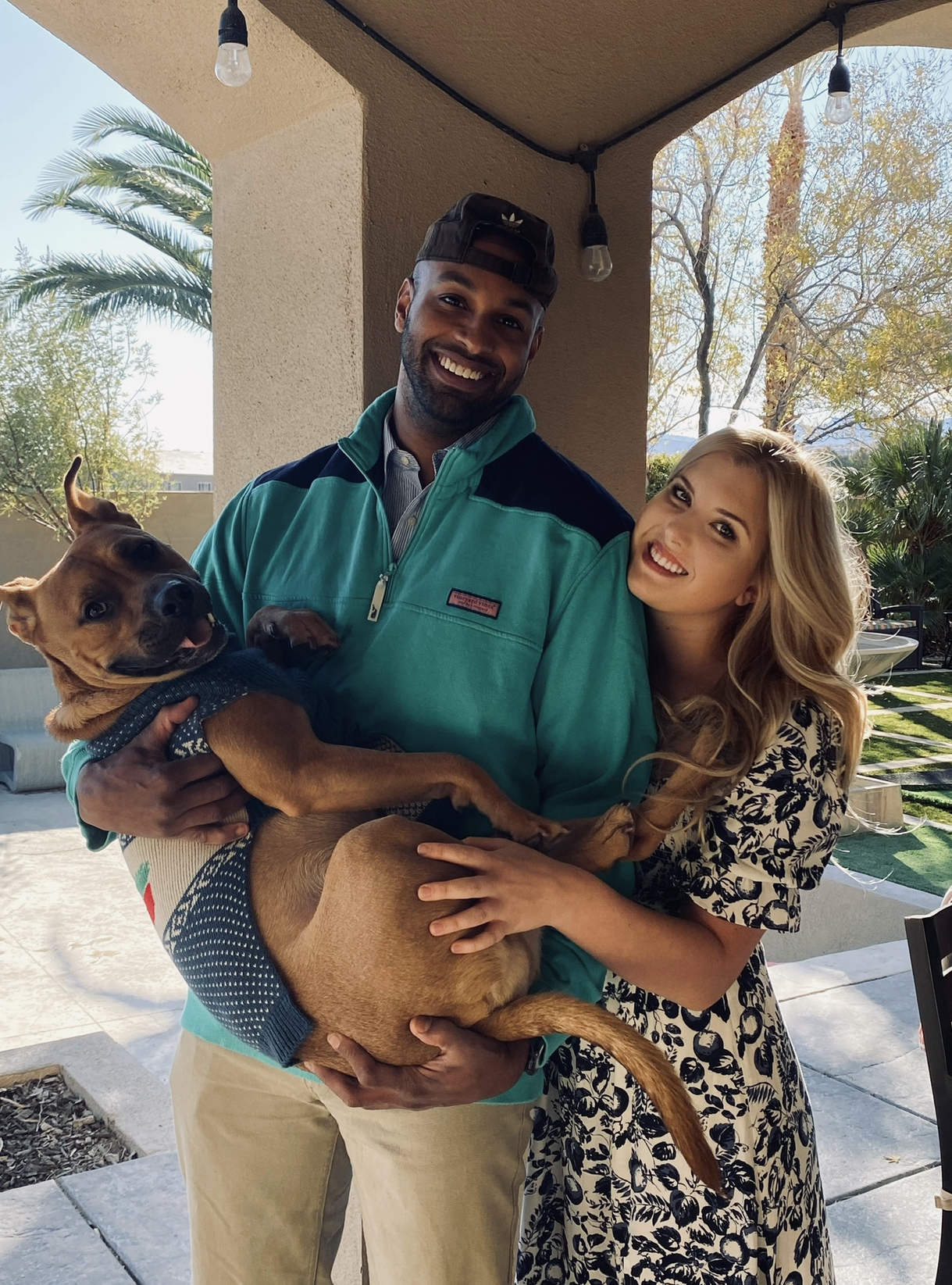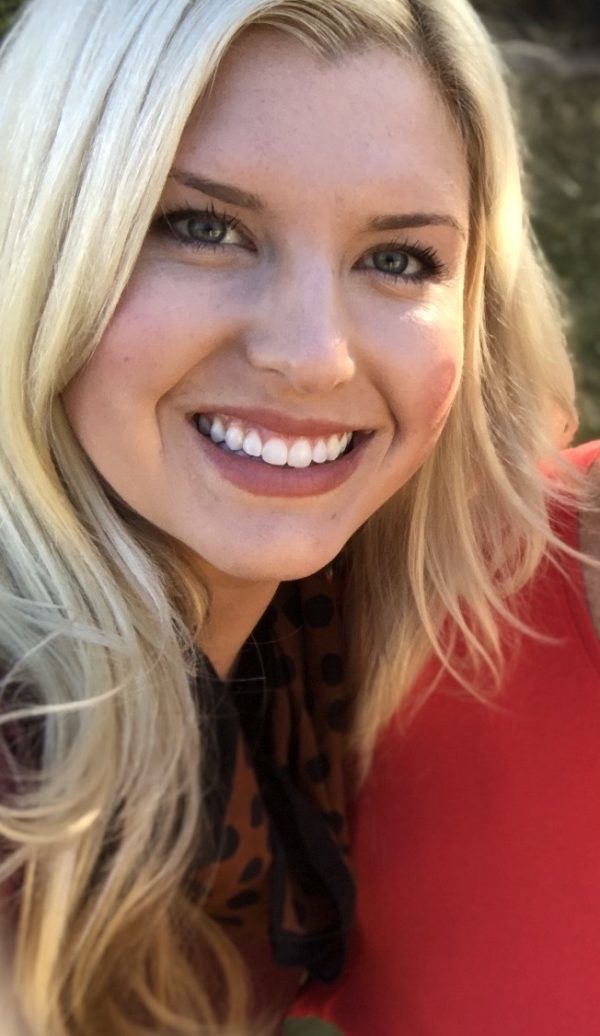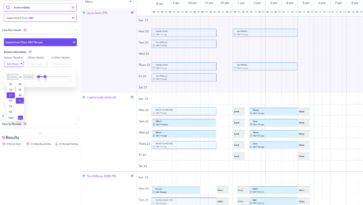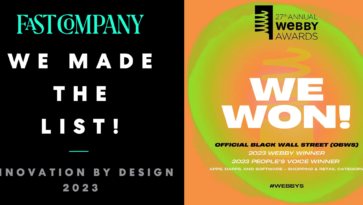Where did you grow up and what was it like?
I was raised in San Diego in the suburbs of Rancho Bernardo, a neighborhood surrounded by golf courses and retirement communities. I loved growing up in San Diego, venturing to the nearest body of water with my friends and living close to my core family.
Outside of work, what are you irrationally passionate about?
At this stage of my life, I’m passionate about building a future for my family. My partner and I incorporate side hustles into our lives to help us build our financial portfolio to become more financially prepared to take fun leaps in our future.
It’s rather common that PMs have uncommon paths into the discipline. Walk us through the process that you went through to get into Product.
Admittedly, when I started my career, I didn’t know what product was, nor had I heard about it. But, after graduating from UCLA, I knew I was drawn to research and the budding world of building technology solutions for anything and everything. I knew I wanted to start my career as an analyst where I would get into the weeds of data to figure out strategies to help the company I was working for grow. Unknown to me at the time, this was the pathway that instilled the core skills of product management in me.
It wasn’t until my second job at a healthcare tech startup when I was first exposed to the product manager role. My first position at that company was as a business analyst to research new business opportunities in the healthcare space during the Obamacare era and one of the new opportunities became a product! Being a business analyst for a growing tech startup put me in a great position to transition from analyst to product because there were a lot of areas of growth for the company. I was lucky to be given the opportunity from my leadership team to own my first product and take on my first Product Manager role. My first product was a new branch of services that the business wanted to provide to their users to help them better understand their health insurance and benefit from programs that provide ease and support when major health events occur and become expensive.
I fell in love with the structure, team collaboration, and the abundance of opportunity in product, but most importantly, I was drawn to working on something that helped people.
Fast forward 6 years later and I’m still loving my job and still appreciating the things that made me fall in love with product at the beginning.

We talk a lot about our jobs being the opportunity to imagine the future and then make it real. What vision do you have for the future and want to make real?
There are still so many opportunities that remain in tech that can enhance the population’s overall quality of life. By introducing the right tech solution, we have the opportunity to remove hardships and to give entire communities ways to improve their lives.
I feel driven by this notion each day and look forward to building a range of products over the span of my career that help a wide range of people with improving all aspects of their life.
Not everything we do works and that’s okay. We learn from those things. What is the least successful product or project you’ve contributed to and what did you learn? (No need to mention real names if it’s an issue)
The not-perfectly-successful projects I’ve worked on have been the ones that taught me the most. They have made me a stronger product manager by forcing me to navigate through challenges and learning through doing. Because of this, I love talking about my less successful projects because they have taught me the best lessons.
The most important learnings that I take with me are the importance of over communication, raising your hand when you don’t know something, producing reliable documentation, prioritizing team relationships, and, something I’ve learned the hard way, always do user testing before you code.

How has a failure, or apparent failure, set you up for later success? Do you have a “favorite failure” of yours?” (Borrowed from Tim Ferris’ “Tribe of Mentors”)
From 2016–2017, I worked as a part-time analyst on the side for a venture capital firm focused on insurance technology solutions. One of the portfolio companies I supported was an auto insurance-tech startup which produced a new auto insurance model geared towards households with semi-autonomous vehicles, or more simply put: vehicles that have the capability to drive themselves.
My first assignment when joining the company was to launch an app within 2 months that would take data pulled from Telsa vehicles, determine how many autonomous miles were driven by the user and communicate the driving statistics to the user in a mobile app. The statistics we were looking to show the user were not available and required an in-house algorithm to determine the data communicated to the user where we factored in speed, car movement, and other behaviors we identified were unique when the car was driving itself. Our goal was to show the user how often their car is driving instead of them, because we believed that liability should be shifted to whomever is operating the vehicle — even if the vehicle is operating itself.
The start of this project had that scrappy, start-up feel which I loved. On a daily basis, the team was having in-depth brainstorms around how to build the algorithm, what we needed to consider, and how to improve our work to determine how we can communicate accurate statistics to our users.
We successfully launched the app in the timeframe required, which secured the company for funding, and we immediately got a handful of users to utilize the app and provide their data. What we learned quickly, was that our algorithm wasn’t delivering reliable and consistent numbers that aligned with the actual autonomous use of our user base.
Regardless of finding holes in the algorithm we delivered, these learnings opened up an avenue to better opportunities and decisions that provided the value to the user we were seeking, even if it didn’t align with our Plan A.
The process of hypothesizing solutions, failing fast, evolving and pivoting always stuck with me in the most positive ways and I think about the lessons I learned from this project frequently.
What’s been the most exciting part about joining Sidebench so far?
Sidebench provided me with the opportunity to intertwine product and consulting. I love working with clients to help them tangibly create their dream, and Sidebench’s value mission allows me to help bring ideas to life that directly impact people in positive ways. Working in tech, we don’t always have the opportunity to see our work change the world for the better, and at Sidebench I feel like all of my hard work gets funneled back into the community to improve people’s lives.
We love to find people that ADD to our culture vs fit into our existing culture. What are some cultural aspects that you’ve experienced that you hope to bring with you?
When I was starting my career as a PM, I had moments where I felt siloed or alone in my process. I craved a team to collaborate with to improve my skills in product.
This prompted me to start searching for new opportunities. My search found me an admirable boss-turned-mentor who knew how to lead a team with kindness, empathy, objectiveness and respect while still hitting our goals, roadmap and timelines. She made herself available to her team to make sure they always felt confident in their role and felt supported in their work.
The role she played and the impact it had on the team is something I’ve held on close to because I saw the overall positive impact it had on morale, quality of work, and team relationships.
At Sidebench, I try my best to take these values and apply them to my everday. I try make it a point to be available to my team members to help them in whatever challenge they face. To help them think through their processes, talk through their challenges, and to make sure they always feel like they have support and a resource with each step they take. The team you work on is vitally important and I’ve wanted to put my best foot forward to give to others what was valuable to me earlier in my career.
Describe your super power or describe what unique skill/perspective you bring to the team here.
Prior to joining Sidebench, I would say my unique skill is that I’m a very empathetic person and always try to put myself in people’s shoes.
What skill, practice, behavior, hobby or habits are you currently working on?
At the beginning of 2022, the leadership team at Sidebench set up a company-wide project for all employees to introduce new habits that they want to grow into and track. One of my habits that I’ve introduce is working more with the business development team to understand the new accounts we bring in and how product can add value. It’s exciting to be able to be supported by a company who supports your growth and learning in areas outside of a standard product role.
Bonus Question: What book, publication, or podcast have you most recommended lately and why?
I’m huge on YouTube when it comes to searching for product lessons or figuring out how to improve my work.
But, in my personal life, I love reading as a way to relax and unwind. The last two books I’ve read this year have been by Emily Henry and have come as recommendations from my colleagues at Sidebench. It’s been great having a network of colleagues who also have the same taste in light reading and provide me recommendations without taking a risk on a book that may have an underwhelming storyline.









